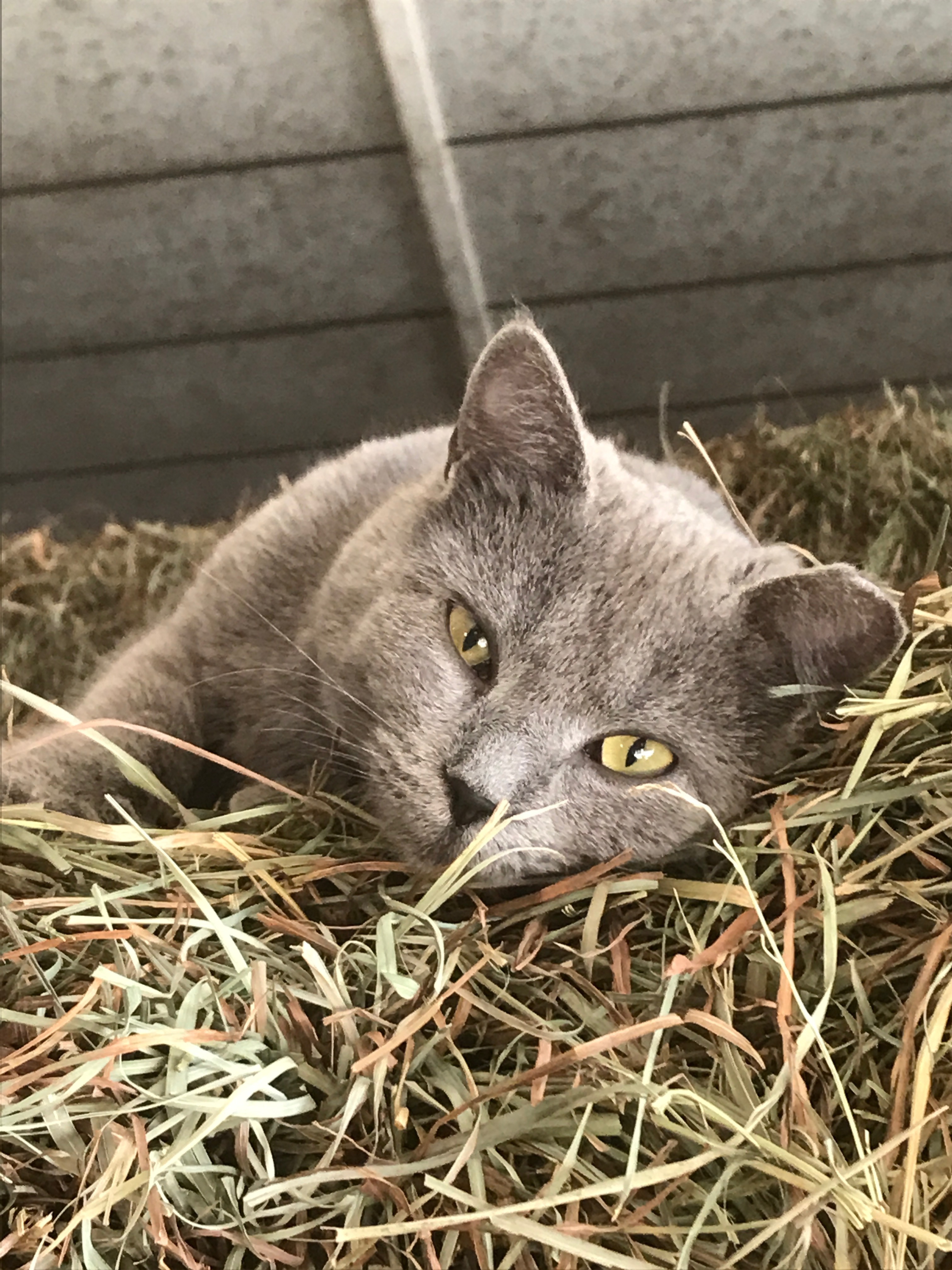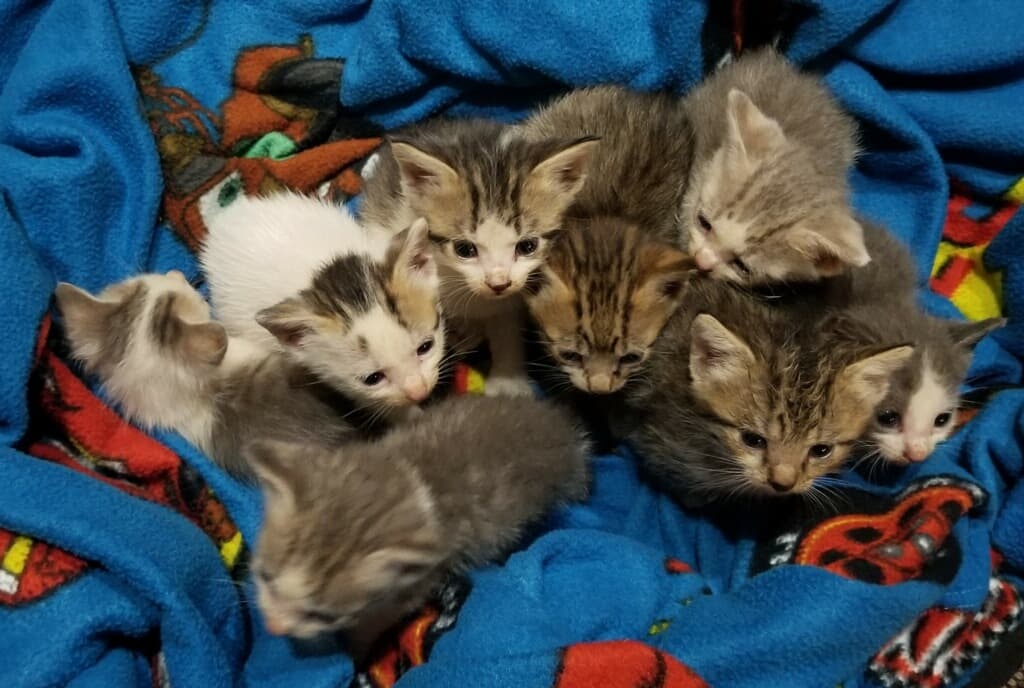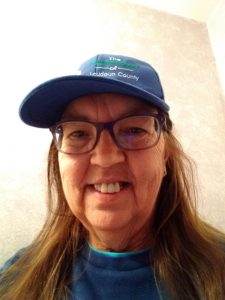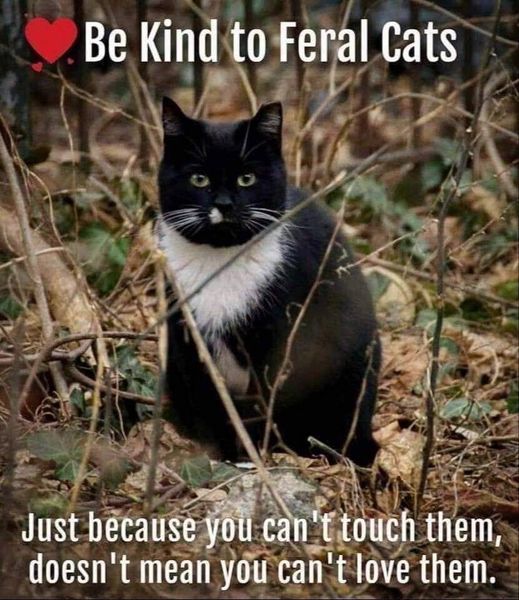Looking for Everyday Heroes

By Kathleen Silver
“Community Cats” is a term used to describe outdoor, unowned, free-roaming cats. In this article, you’ll learn why running the HSLC Community Cats program takes a dedicated village of everyday heroes. But first, let’s dispel a few of the misconceptions about community cats and then introduce you to one of those heroes.
“Outdoor cats live horrible lives!”
Accidents, abuse, and disease affect outdoor cats living alone or in groups. But, feral cats are generally not adoptable and simply cannot live inside. HSLC’s Community Cats program improves the lives of these cats in so many ways through trap, neuter, and return (TNR). TNR also serves to humanely stabilize cat populations. In addition, HSLC community cat caretakers ensure that the cat colonies in our care are fed and watered every day; plus they keep an eye out for any health issues.
“I need special skills to help trap cats.”
Volunteers who help manage feral cat communities are genuinely silent heroes. But, they don’t require special skills. Rather, they simply need to be patient and dedicated. It also helps if the volunteers appreciate the outdoors regardless of the season.

“Born a feral cat, always a feral cat.”
While this is usually true of adult feral cats, it is not necessarily true of kittens. Once a feral cat gives birth, the kittens can usually be socialized and adopted through normal means. There are anecdotal stories of adult cats becoming socialized. But, in most cases, these cats had been socialized before their outdoor life.
Everyday Hero: Dora Lea
Dora Lea Spring-Lucas is one of our Community Cat heroes; in fact, she’s a seasoned veteran. She can attest to the benefits of these bonded cat communities with nearly 30 years of experience helping feral cats. Volunteers like Dora Lea, help to manage over 20 community cat sites in Loudoun County.

When asked what her biggest challenge is, Dora Lea didn’t have to consider the question too long. “People dropping tame (domesticated) cats. I do feel for people who might be embarrassed about surrendering their cats directly to the Humane Society, but they shouldn’t feel that way. For us to contain these feral colonies, we need to keep the populations down.” If you, or someone you know, adopted from HSLC and are considering surrendering your animal, please contact us at helpanimals@humaneloudoun.org.
Two Ways You Can Help
Community Cat Caretaker looks after a feral cat colony’s health and well-being regularly (e.g. each Monday). The caretaker provides cat food and water and notifies the lead volunteer when a cat is sick. HSLC provides on-site training. If you have an eye for detail, this could be the role for you.
Trapper: Trappers help community cats by catching them in humane traps (provided by HSLC) and helping to get them to our vet partners to be neutered, vaccinated, and microchipped. We provide on-the-job training and shadowing until new trappers are comfortable working independently. Most trappers work in pairs or groups.
Committing to volunteer as a trapper can be time-consuming as there is a lot of waiting around for timid cats and kittens to walk into traps. But, Dora Lea says the satisfaction and reward can be significant. Every trap that closes contains a life filled with less stress, disease, and abuse.
Apply to be an everyday hero today!

